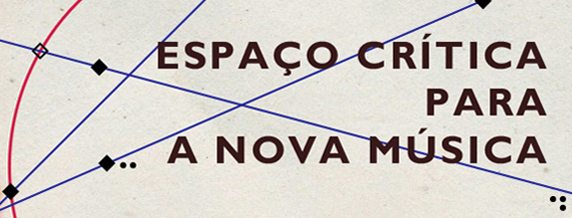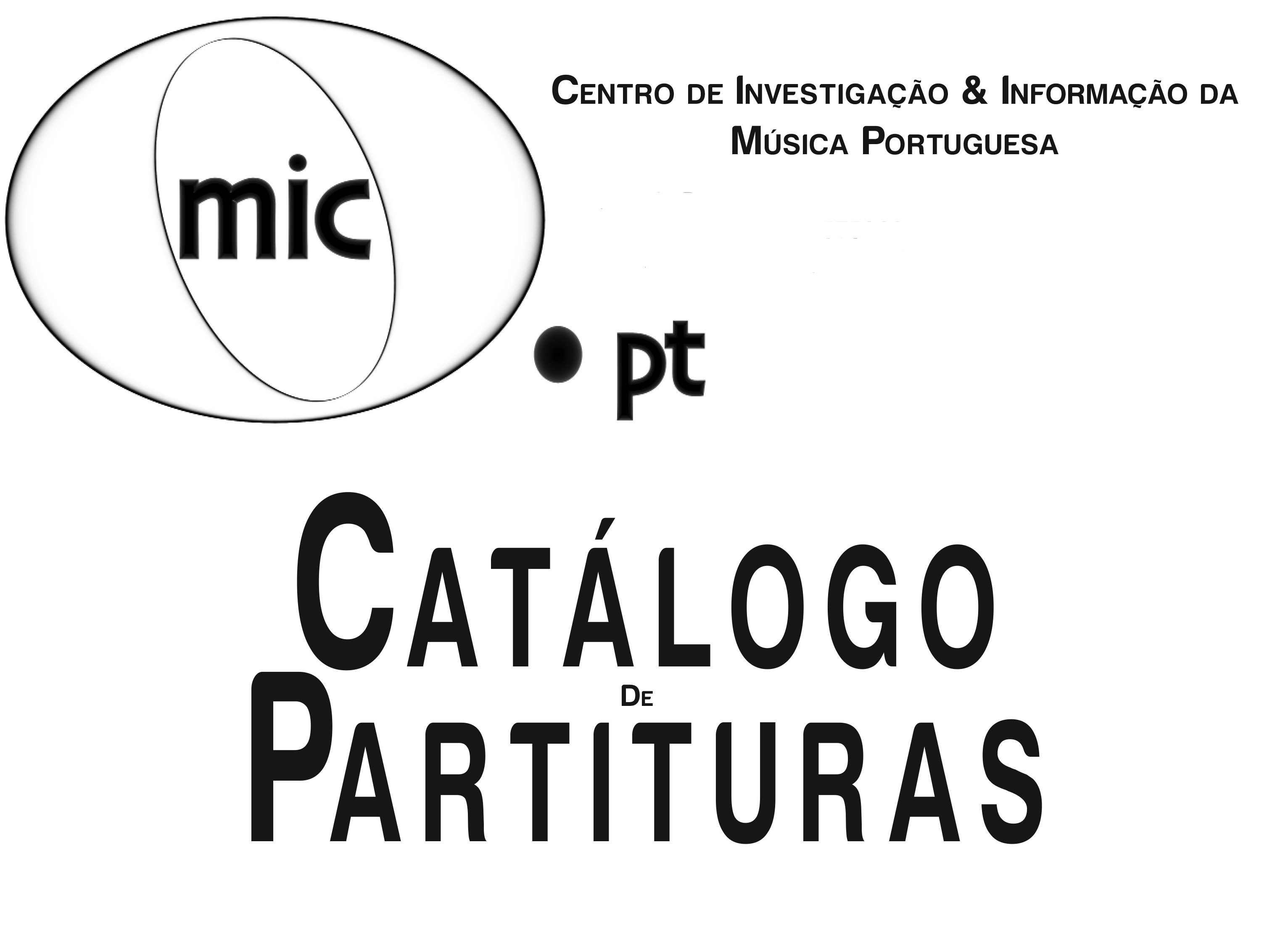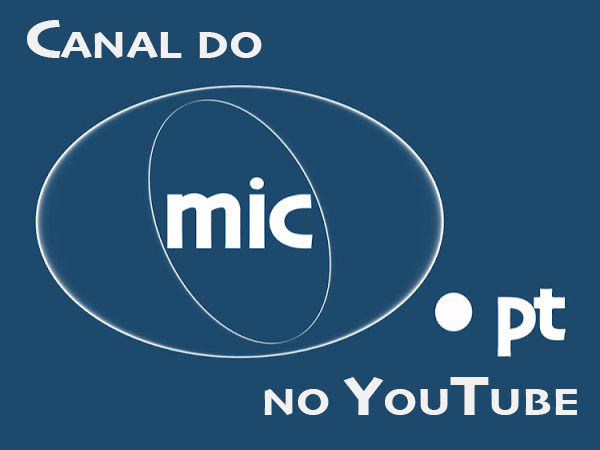“Clotilde Rosa’s creative emergence on the Portuguese musical scene is simultaneously atypical and symptomatic”[1], wrote Manuel Pedro Ferreira on the pages of “Ten Portuguese Composers” (“Dez Compositores Portugueses”). The composer, harpist and teacher “awakened for composition only around the age of 45”[2] through the participation, as performer, in the Lisbon Contemporary Music Group (Grupo de Música Contemporânea de Lisboa – GMCL) conducted by Jorge Peixinho, becoming one of the most important personalities in what concerns the creation and divulgation of contemporary music in Portugal and having “as her base the experience of collective improvisation and composition executed by the GMCL.”[3]
Born in Queluz on May 11th 1930 Clotilde Rosa was brought up in a family with strong musical traditions – her father was the violinist an tenor José Rosa and her mother the pianist and harpist of the National Broadcaster Orchestra, Branca Belo de Carvalho Rosa. “My father and my mother, were fundamental for my education, since when they passed away – at the age of 10 I was left without them, I was only a child – their image remained in me and I chose music exactly for this reason”[4] “It all marked not only me but also my brother. It was a tragedy in our dream-like environment, in our musical environment… the rehearsals at home – my father used to sing, and my mother accompanied him on piano –, the preparations for the spectacles, the rehearsals at the theatre, the visits to cafes with friends after the spectacles, the operas we accompanied, in which my father was the protagonist, the orchestra concerts conducted by Pedro de Freitas-Branco…”[5]
Clotilde Rosa had her first particular piano lessons at the age of 10, having completed in 1949 the Superior Course at the National Conservatory in Lisbon, tutored by Ivone Santos. At the age of 12 she started studying Harp at the same institution with Cecilia Borba, having graduated from the Complete Harp Course in 1948 – she dedicated herself to this instrument professionally. “Fortunately I was forced to conclude a [piano] course, as it gave me optimal fundaments for composition (…). Yet, today I even feel a certain pity, for having somewhat abandoned the technique. Today I play little piano, as I have never really studied it. Harp is the instrument, to which I dedicated myself.”[6]
Clotilde Rosa reinitiated her studies in 1958, making part of the Menestréis de Lisboa (Lisbon Minstrels) conducted by Santiago Kastner, with whom she studied figured bass applied to harp as well as interpretation of ancient music. From 1960 to 1963 she received various scholarships from the Calouste Gulbenkian Foundation and from the Dutch government in order to study harp with Phia Berghout in Amsterdam. In 1964 she studied harp with Jacqueline Borot in Paris and in 1967 the realization of figured bass with Hans Zingel in Cologne, with subventions from the Calouste Gulbenkian Foundation. “I have a traditional musical education, but my modernist spirit has always existed since I was very young”[7], remembers Clotilde Rosa. Later, what also occurred to be important, was the familiarity with her brother, architect and visual artist as well as her sister-in-law Helena Almeida, an important and internationally recognized artist, with works acquired by various important museums, form London to New York.
It was in 1962 when Mário Falcão proposed her to perform “Imagens sonoras”, a piece for two harps composed by Jorge Peixinho, which occasioned Clotilde Rosa’s approximation to this composer and to the avant-garde Portuguese music environment – this contact turned out to be fundamental for her life. “If it had not been for Jorge Peixinho, I believe, I would have never written a single line. Jorge Peixinho was the «engine starter» for contemporary music in Portugal. (…). [Mário Falcão’s proposal] came in the best moment, since, due to family reasons, I had been somewhat withdrawn from the musical environment.”[8]
Together with Jorge Peixinho, Clotilde Rosa was one of the first to introduce to Portuguese music the experience of the famous Darmstadt courses. In 1963 she realized one of the three journeys to that city, which turned out to be of fundamental importance to her career. The contact and experience with composers such as Pierre Boulez, Mauricio Kagel, or György Ligeti gave her new perspectives of approaching contemporary music. “It was an extraordinary revelation; it was the time of Stockhausen’s «Momente», I heard works by Dieter Schnabel, went to lessons by Mauricio Kagel… I remember that Ligeti’s «Atmosphères» left me with a remarkable impression. I attended lessons of Stockhausen, Boulez, and conferences by Michel Butor on the modernity of a work of art. Bruno Maderna, Berio, Cathy Berberian, the Kontarsky brothers were also there. I was marvelled by that environment, which in fact came to meet my anxieties.”[9] In 1969, when Clotilde Rosa went to Darmstadt for the last time, Jorge Peixinho participated in the performance of Karlheinz Stockhausen’s “Musik für ein Haus”.
During the 1960s Clotilde Rosa belonged to a group of musicians united by Jorge Peixinho, which in 1970 gave origin to the emblematic Lisbon Contemporary Music Group. Continuing to be interested in ancient music, she formed at the end of the 1970s, together with Carlos Franco and Luísa de Vasconcelos, the Aniqua Trio. She also performed with the Porto Symphony Orchestra, the National Symphony Orchestra, both from the National Broadcaster, having also worked with orchestras of the São Carlos National Theatre and the Calouste Gulbenkian Foundation.
It was in 1974, a result of Jorge Peixinho’s invitation, when Clotilde Rosa sketched her first musical passage in the collective work “In-con-sub-sequência”, which presents the influences of Karlheinz Stockhausen (intuitive music, collective improvisation). She assumed herself as composer in 1976 with the piece “Encontro”, her first non-collective work. Applied for the International Composers’ Tribune in Paris by Joly Braga Santos and Nuno Barreiros, under the suggestion of Jorge Peixinho, it was recorded by the RDP and reached the 10th place ex-aequo, among 60 works from 30 countries. “There is a funny aspect concerning this work: Jorge Peixinho always believed in me as composer, and in that time he asked Joly Braga Santos and Nuno Barreiros to submit my work to the International Tribune of Composers. They only knew me as harpist, and I believe they both were somewhat surprised and hesitant, but Jorge Peixinho insisted with them and the idea went forward.”[10] Clotilde Rosa also gained the 1st Prize at the National Composition Competition, Oficina Musical do Porto, with “Variantes I” for solo flute.
Between 1987 and 1989 Clotilde Rosa was lecturing Analysis and Composition Techniques at the Music School of the Lisbon National Conservatory, having changed for the Harp class between 1989 and 2000. In that time she introduced contemporary music to the Harp Course regular programme, for the first time in Portugal. Between her various activities she has also integrated the Music Sectorial Commission of the Portuguese Authors’ Society (Comissão Sectorial da Música da Sociedade Portuguesa de Autores).
On April 21 2012 at the Cine-Teatro Paraíso in Tomar, the Lisbon Contemporary Music Group conducted by Christopher Bochmann premiered Clotilde Rosa’s new piece, “Espiral”. This work results from a commission made by Dr Lucas Manarte, in order to be presented at the Psychiatric Congress in Tomar. It translates to a musical discourse some clinical conditions from fragments of poems / texts by Marta Cristina Araújo, Luís Vaz de Camões, Armando Silva Carvalho, Lucas Manarte and João Rebocho, which suggest the lecture of various states of “Depression”, “Obsession”, “Catalepsy”, “Delirium”, “Maniac Depression” and finally “Panic”. “I transposed to music various psychotic states, chosen by Dr Lucas Manarte, who helped me to understand them in a language easy to assimilate. I found this work very interesting, but also challenging to be obtained through music, and never tried by me before.”[11]
Musical Language
“In relation to my preferred composers there is an almost infinite ocean in me, since I was performing in an orchestra, a source of sound richness, in spite of our limited environment. (…). On the other hand, and I believe that this was more important to me as composer, the visits to Darmstadt courses, listening to the most important works of our contemporary universe (…) by Boulez, Stockhausen, Berio, Maderna, Ligeti, Kagel, Posseur…”[12] Clotilde Rosa’s familiarity not only with the romantic and classical repertoire but also with the modern techniques of composition, as well as the post-war musical idioms, and also her participation in the unique Portuguese ensemble of that time, which maintained permanent contact with contemporary European music, in the time (the 1970s) when in Portugal there was no access to editions and documents on contemporary music nor an adequate educational frame, gave her the possibility, “once awaken towards her proper creative potential, of an extremely rapid affirmation as composer.”[13]
Clotilde Rosa considers herself, in a broader perspective, as a post-serial composer. In the time of great intercommunication at a global level, in which the languages are mingled and globalized, she believes in the connection and influence of the environment, in which a composer lives, as well as in the importance of his roots. Having originally obtained a traditional musical education, her approximation to contemporary music, occurred through her varied experience, above all, as performer. In the domain of composition she attended during two years the Counterpoint Class of Jorge Croner de Vasconcelos, studied Composition with Jorge Peixinho between 1975 and 1980 in a more regular form; participated in Analysis Classes of Álvaro Salazar during the Estoril Summer Courses and worked with Instrumentation under Carlos Franco. In spite of her aspiration towards sound experimentalism, such as for example in “As quatro estações do ano” and “Projecto-collage”, she never proportioned herself to work in an electroacoustic music studio, composing predominantly for voice (tradition and predilection inherited probably from her father), chamber, brass and clarinet ensembles, solo instruments, various works for piano solo and orchestra. “Since «Sonhava de um marinheiro» (1980) Clotilde Rosa’s voice became progressively unmistakeable (…), privileging the flux of contrapuntal textures, free chromaticism (even though controlled serially) and an expressively suggestive melodism, recurring to different types of writing (frequently experimental in the first phase, more pragmatic and eclectic since the 1990s).”[14]
Clotilde Rosa’s catalogue includes more than 80 titles: chamber music works (solo, duets, trios, quartets, works for five or more instruments and also for voice and accompaniment), orchestral music (“Ricercari” 1983/84, “Paisagem Interior”, 2000, still unpublished in spite of having been commissioned by the Ministry of Culture), an opera (“Portuguex” or “O Desfigurado”, 1986/89, a previous SEC commission in the 1980s, also unpublished and never premiered), theatre and ballet (“Música para Inês I e II”, 1983/86) and also various didactic pieces. “The fact that she performs the harp is particularly relevant in her music, in the form, in which she employs harmony and string instruments (harp an piano).”[15] The sonorous body of her music, rich in colours and full of evocative atmospheres, “possesses a strong dramatic, emotional”[16] and poetic content joined with the modernity of writing. Clotilde Rosa describes the material used in the construction of her language as “vast, with the inheritance of a free serial root, employing three chords of four sounds almost as a conducting line, which frequently inhabits my works, organizing me in a parallel way, creating small cells, which make thematic fragments and rhythmic modules appear.”[17] These three chords of four sounds are frequently employed in order to construct harmony, which became peculiar in her work. Besides, “Clotilde Rosa feels an inherent affinity towards chorographical movement and poetry, trying to translate them through gestures, which joined with musical performance, make it even more significant”[18], as wrote Beatriz Serrão on the pages of her thesis.
Presently, Clotilde Rosa does not obey any established code, using freely a symbiosis of all the techniques, which she has developed until now: non-consonant chords, melodic fragments and clusters; serial techniques (engine for structural development); small cells, most of them of only two or three sounds, which are ramified and augmented in an imitative style; counterpoint; and also various aspects of repetitive minimalism present in some of the works with aleatoric fragments.[19]
Clotilde Rosa on YouTube
"Ricercari”(1983/84)
Tokyo Symphony Orchestra conducted by Naoto Otomo
"O Fabricar da Música e do Silêncio”(1987)
Poems by Armando Silva Carvalho
GMCL - Grupo de Música Contemporânea de Lisboa
Baritone: Jorge Martins
Flute: João Pereira Coutinho
Violoncello: Jorge Sá Machado
Piano: Anne Kaasa
"Amor que mal existe”(1992)
Poem: Florbela Espanca
GMCL - Grupo de Música Contemporânea de Lisboa
Baritone: Jorge Martins
Clarinet: Luís Gomes
Piano: Anne Kaasa
"Contornos”(1998)
Opus Ensemble
"Trio de cordas”(1998/99)
GMCL - Grupo de Música Contemporânea de Lisboa
Direction: Carlos Franco
"Complexidades”(2001)
Poems by João Paulo Carvalho Franco
Performers: Ana Ester Neves e Francisco Monteiro
"El Vaso Reluciente”(2003)
Sonet: Luís Vaz de Camões
GMCL - Grupo de Música Contemporânea de Lisboa
Direction: Christopher Bochmann
"Impromptu”(2007)
Hugo Queirós – bass clarinet
---
1 Manuel Pedro Ferreira, “A Reinvenção do Sentimento em «Ricercari» de Clotilde Rosa" in:
"Dez Compositores Portugueses. Percursos da Escrita Musical no Século XX", coordinated by Manuel Pedro Ferreira, Lisbon 2007, p. 347; English translation: Jakub Szczypa
2 ibidem
3 ibidem
4 Interview with Clotilde Rosa conducted by Miguel Azguime;
mic.pt, 2004
5 Interview with Clotilde Rosa in: Sérgio Azevedo, "A Invenção dos Sons. Uma Panorâmica da Composição em Portugal Hoje", Editorial Caminho, Lisbon 1998, p. 103; English translation: Jakub Szczypa
6 Interview with Clotilde Rosa conducted by Miguel Azguime;
mic.pt, 2004; English translation: Jakub Szczypa
7 Interview with Clotilde Rosa conducted by César Viana in: Arte Musical, IV Série, n.º 4, Juventude Musical Portuguesa, Lisbon 1996/07, p. 154; English translation: Jakub Szczypa
8 ibidem, p. 153
9 ibidem, p. 155
10 ibidem, p. 157
11 Clotilde Rosa in the programme note for “Espiral:
Grupo Música Contemporânea Lisboa; English translation: Jakub Szczypa
12 Interview with Clotilde Rosa in: Sérgio Azevedo, op. cit., p. 104-105; English translation: Jakub Szczypa
13 Manuel Pedro Ferreira, op. cit., p. 347; English translation: Jakub Szczypa
14 Manuel Pedro Ferreira, op. cit., p 346 and 348; English translation: Jakub Szczypa
15 Francisco Monteiro, “The Portuguese Darmstadt Generation – the Piano Music of the Portuguese Avant-Garde”, University of Sheffield 2001, p. 258
16 Patrícia Bastos, “Rosa, Clotilde”, in: Enciclopédia da Música em Portugal no Século XX, direcção Salwa Castelo-Branco, Lisbon 2010, p. 1148; English translation: Jakub Szczypa
17 Interview with Clotilde Rosa in: Sérgio Azevedo, op. cit., p. 104; English translation: Jakub Szczypa
18 Beatriz Serrão, “Influências da Performance na Música entre 1970 e 90 em Portugal: Jorge Peixinho, Clotilde Rosa, Eduardo Sérgio”, Universidade Nova de Lisboa 2011, p. 2; English translation: Jakub Szczypa
19 gmcl.pt/clotilderosa




